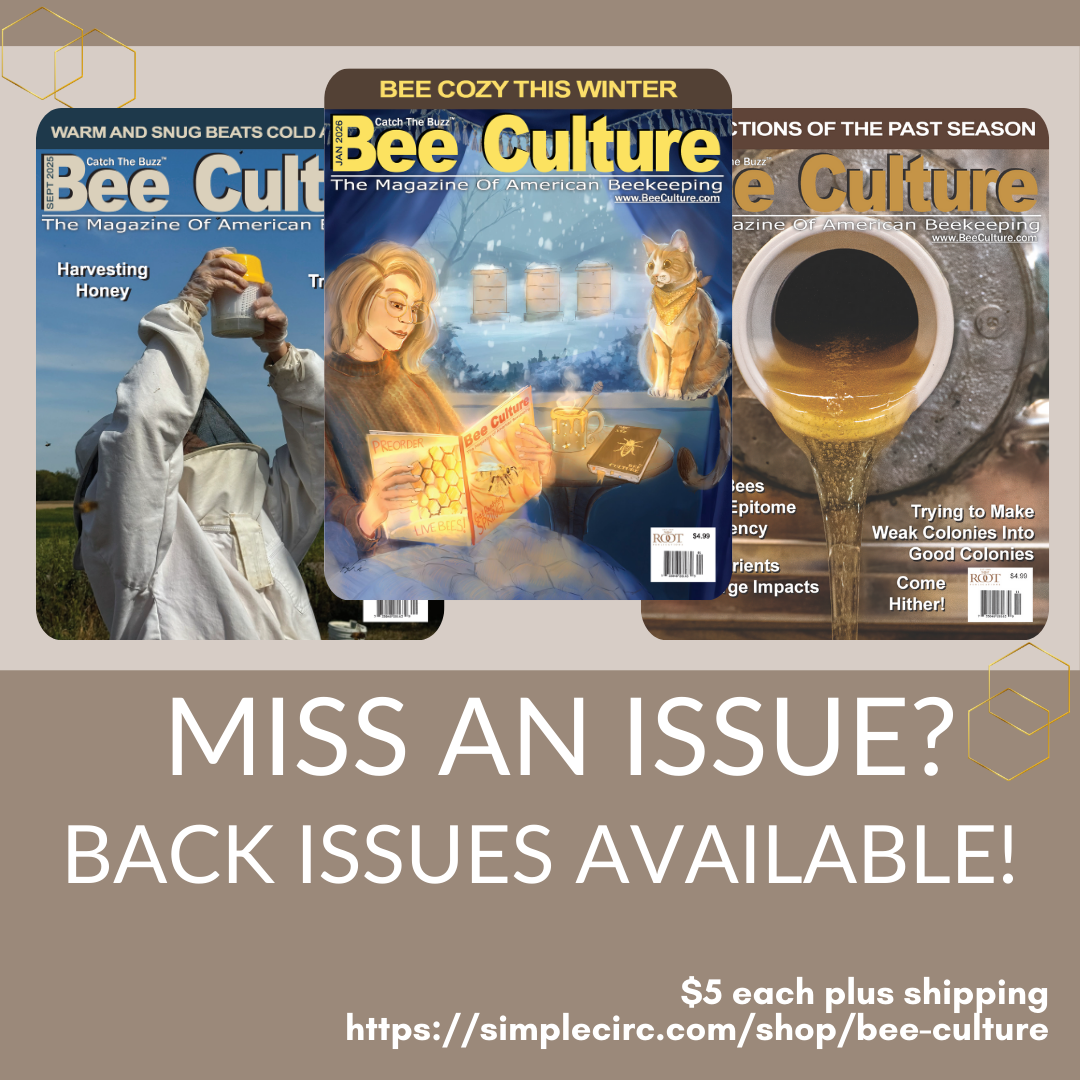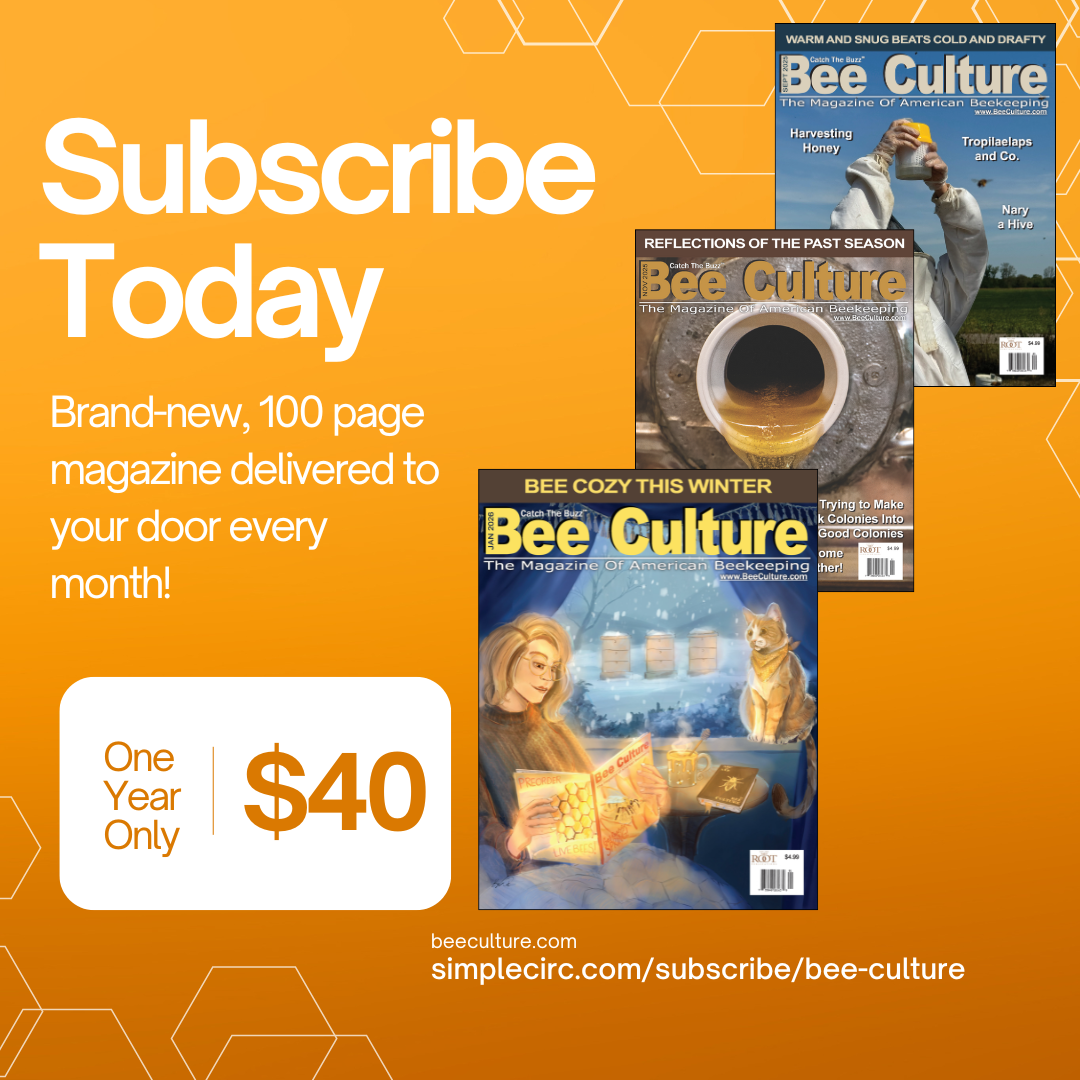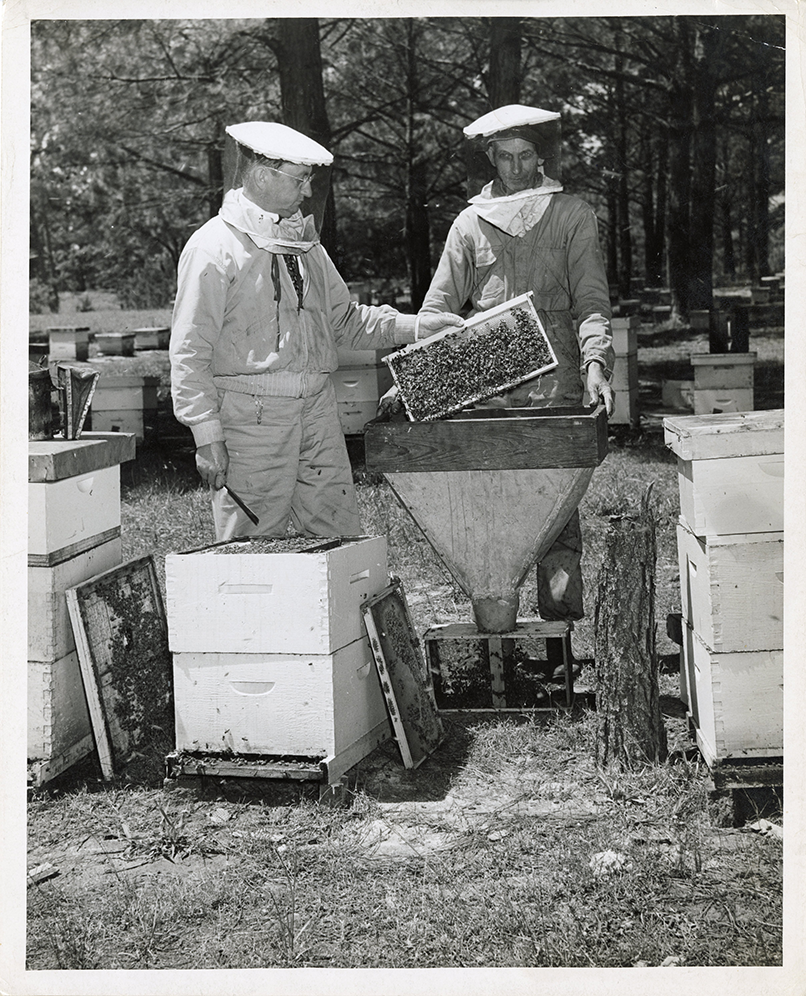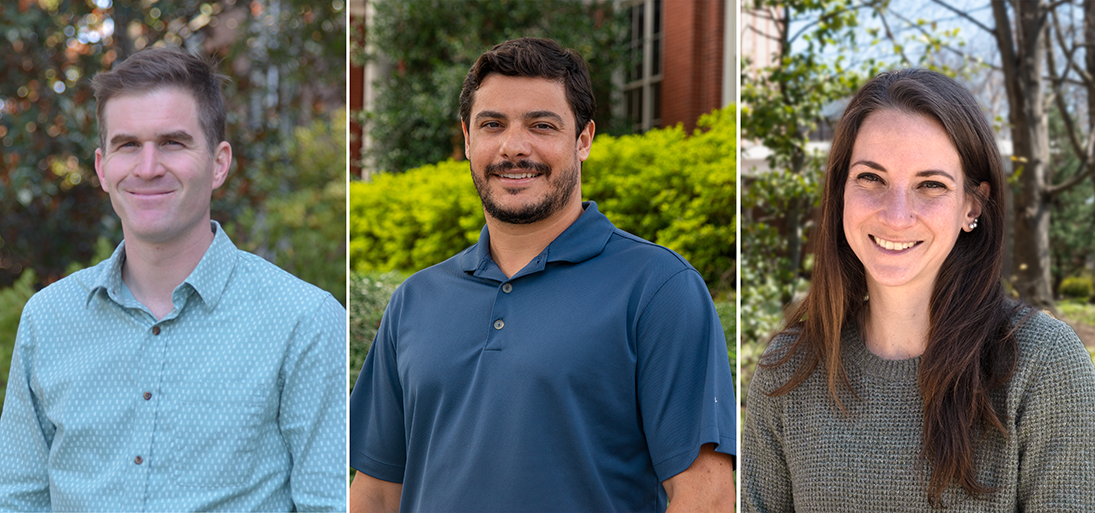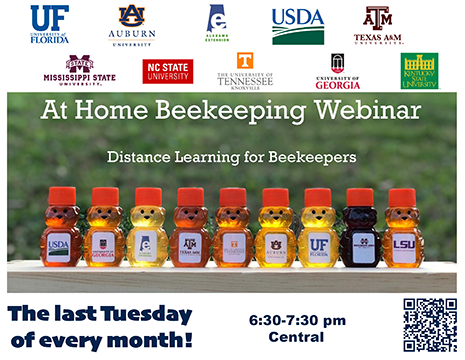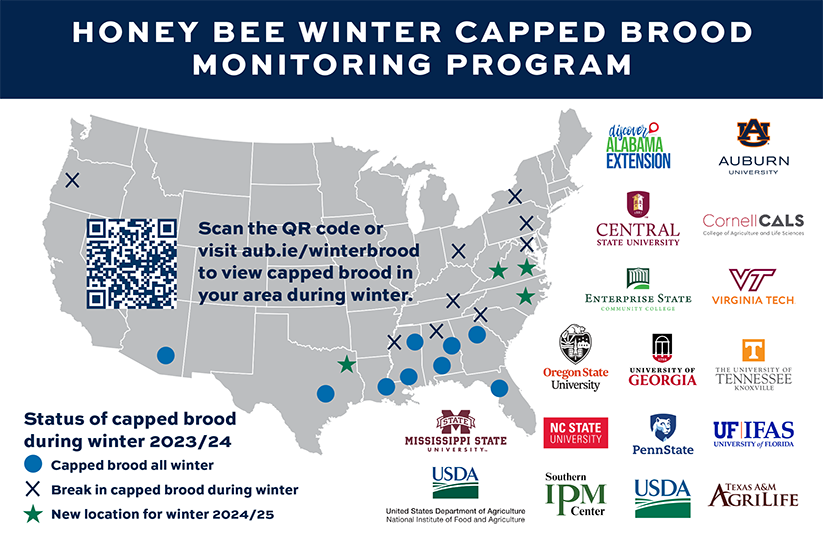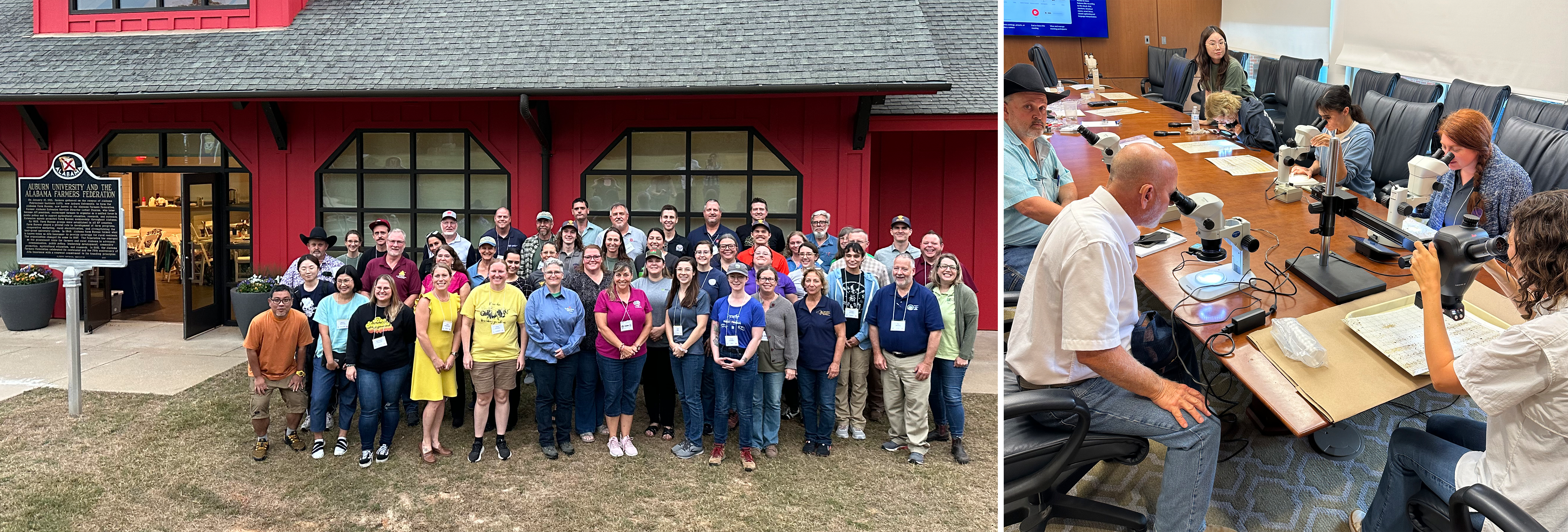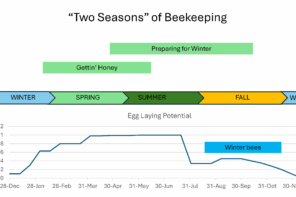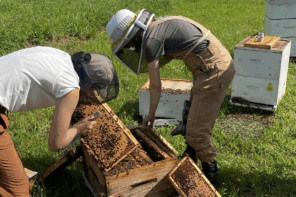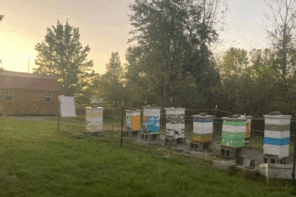Introductions to the Auburn Bee Lab
By: Geoff Williams
It was such an honor to be invited by Editor Jerry Hayes to carry on the tradition of the University Series in Bee Culture. Our institutional predecessors – the University of Florida and UC Davis – have strong and storied histories of honey bee research and education, and are located in hub states of the U.S. beekeeping industry.
Auburn University’s contribution to beekeeping has somewhat of a smaller profile, but to our credit, goes back at least 107 years to 1917, when with the help of my university’s librarians, written record of ‘a college apiary to demonstrate equipment and apparatus as used in modern beekeeping’ was found. Dare I say that we are probably using much of that same equipment to this day. Our neighbors at Tuskegee University, just 20 miles down the I-85 from us, have a much more well-documented apiculture education history, exemplified by the renowned ‘Beekeeping Ladies’ beekeeping club, founded by Margaret Murray Washington, the wife of Booker T. Washington, in the late 1800s. You can read more about their storied history in an online Bee Culture article that was published on January 1, 2022 called ‘The history of beekeeping at Tuskegee University.’ It’s quite inspirational.
Through the years at Auburn I can give credit to professors F.L. Thomas (1915-24), F.E. Guyton (1921-63), G.H. Blake (1950-83), and J.H. Cane (1984-97) for teaching apiculture, among many other courses, on main campus, while our friend Jim Tew led a part-time Extension program for Alabama all the way from The Ohio State University, some 700 miles away. Auburn didn’t invest in a full-time faculty member to focus on honey bees until I arrived in 2016. Despite fire ants taking over what was historically used as a bee lab (a fire ant researcher quite literally took over the space), I still came across a jar of honey from Professor Cane’s era. I only risked but a small taste; it was dark as molasses!
Auburn phasing away from any kind of bee program at the turn of the millennia was pre-dated by decline in the commercial beekeeping industry in Alabama. I have no evidence to suggest that the two were related, but given Auburn’s land grant status, a lack of vocal stakeholders to promote bee research and education could have played a role, especially given what I have experienced from our current group of state beekeeping leaders. The Alabama Beekeepers’ Association and the Alabama Farmer’s Federation have been great to partner with! From the 1940s to the 80s, Alabama was a major queen and package producer; heck, an early version of Laidlaw’s Contemporary Queen Rearing book contained images of queen mating yards nestled among the pines in Alabama! This industry was spurred on by generational beekeeping families such as the Normans and the Harrells (Fig. 1). Beekeepers still refer to them to this day – the heyday of Alabama beekeeping.
They made Alabama among the largest of package producing states in the country, most of which ended up in Canada (my birthplace) before the border closed. Speaking to our state’s long-standing bee inspector, Randy Hamann, there are probably several reasons why Alabama to this day has a very small commercial beekeeping industry. I can probably count the number of commercial beekeepers here on one hand. Randy said that many large-scale beekeeping families just didn’t get to that third generation. Beekeeping with varroa became tough. The Canadian border closing as a response to varroa and tracheal mites stand outs as an obvious factor, since it was a major destination for Alabama’s packages, but it’s important to note that at the time Alabama had a pretty restrictive border to movement of bees on comb, and that law still exists to this day. Created back in the 50s, according to Randy to most likely protect Alabama’s large beekeeping operations from out of state beekeepers overwintering in Alabama, rather than to curb the spread of disease, the law certainly made it more difficult to bring in nucs and colonies as part of a typical migratory beekeeping operation. But, it’s not impossible. Every couple of years talk of opening the border comes up. It can be contentious, as you can imagine.
Fast forward to today, and Auburn’s bee program is on an upward trajectory. We just hired two new faculty – Dr. Anthony Abbate to focus on native bee ecology and Dr. Selina Bruckner to focus on apiculture Extension (Fig. 2). Together, we address Auburn’s main mission areas, since I have research and teaching responsibilities, Anthony focuses on research, and for Selina, a mix of Extension and research. From one perspective, the relatively high density of honey bee labs in the southeast could be seem as stirring up competition and friction – we are all looking at the same pots of money to do our work – but from my perspective the opposite has happened. We have mostly come together to drive our activities, and hopefully impacts, to higher levels. As we continue this University Series through 2025, you’ll learn more about the efforts we are taking to promote U.S. honey bees and beekeepers, often in collaboration with several of our colleagues from the southeast and even around the world. A couple examples I’m especially proud of is our At Home Beekeeping Series, born out of the need for virtual apiculture education during COVID-19, which still occurs monthly (Fig. 3), our Winter Brood Monitoring program (Fig. 4), which tracks status of capped brood throughout the winter dearth with the idea of optimizing oxalic acid treatments, especially in areas with mild climates, as well as our work with tropilaelaps (Fig. 5). As much as I love working with honey bees, I love working with the people working with honey bees – the beekeepers, the researchers, the Extension specialists. We have a great community!
I’ll leave it here for now, for fear of stealing the thunder of some of my colleagues and students that will dive deeper into our efforts as we move through the year. If you just can’t wait to see what we are up to, please check out our social media, including our relatively recently launched YouTube channel (youtube.com/@auburnbees), which was inspired by the updates beekeepers are producing, for regular check-ins of us. All the best for 2025, and I hope to see many of you at upcoming events, starting at ABF in Reno! Please say ‘hi’ if you see me.




